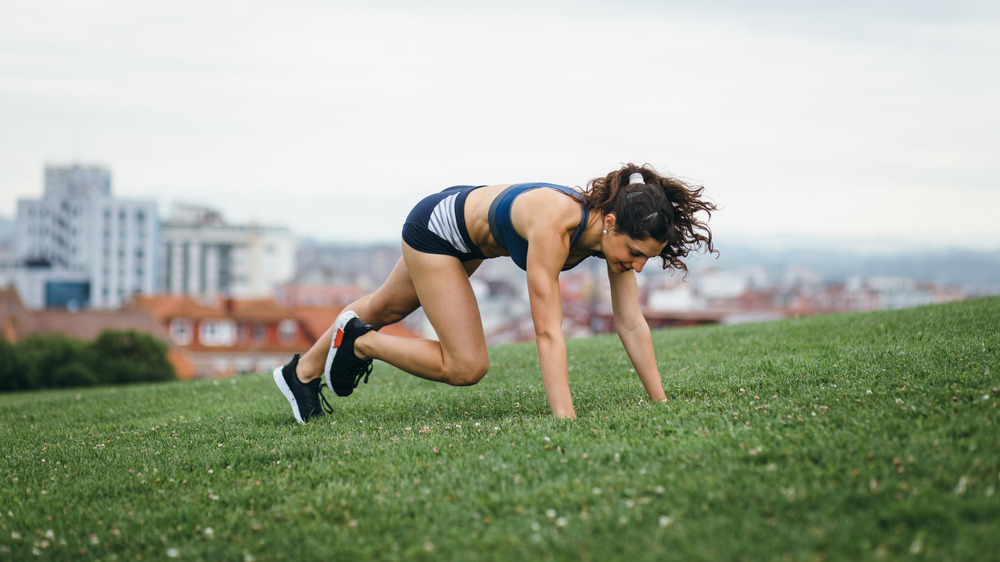The Real Difference Between Aerobic And Anaerobic Exercise
Aerobic exercise includes jogging, biking, walking, swimming, rowing, dancing, and running — basically, it's something you can do for an extended period of time. It causes you to breathe heavier and gets your blood flowing (via Cleveland Clinic). Aerobic exercise uses stored carbs, fat, and proteins along with oxygen to fuel the workout.
Anaerobic exercise, on the other hand, includes high-intensity interval training (HIIT), lifting weights, sprinting, and calisthenics (push-ups, squats, burpees, box jumps). This type of exercise cannot be done for an extended period of time. Anaerobic exercise uses energy in your muscles to fuel the workout (via Piedmont Healthcare).
The term aerobic means "with air" and refers to the body using oxygen to fuel the workout. The term anaerobic means "without air" and refers to the body creating energy without oxygen. Everything we do, especially exercise, demands energy from something, but that energy can come from oxygen — or stores in the body such as carbs, fat, and protein (via Nuffield Health).
Benefits of aerobic and anaerobic exercise
There are benefits to both aerobic and anaerobic exercise. Which one you want to do might depend on your fitness goals, but you can do both for optimal fitness.
Aerobic exercise will help you improve your respiratory and cardiovascular systems. Your heart and lungs get stronger and work more efficiently. When your fitness level improves, you can do this type of exercise for a longer period of time. These aerobic exercise benefits will help you decrease your risk of heart disease, lower your blood pressure, improve your good cholesterol (HDL), control blood sugar, and help you maintain or lose weight.
Anaerobic exercise helps strengthen bones, burn fat, build muscle, and maintain or build muscle mass. Anaerobic exercise can lower your risk of osteoporosis, help reduce stomach fat, increases your power, boosts your metabolism, improves your fatigue levels, boost your mood and fight depression, protects your joints, and gives you more energy (via Healthline).


